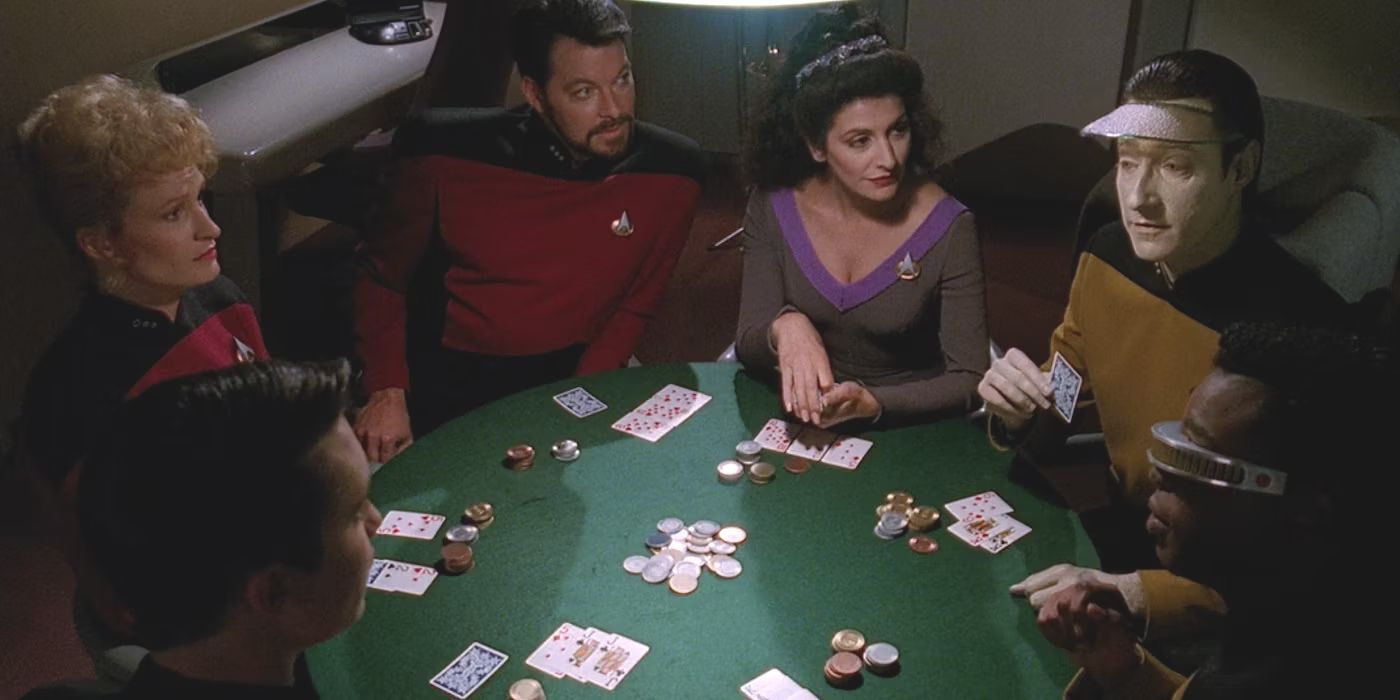During the press tour for the final season of Star Trek: Picard, the former cast of The Next Generation cited one reason the former felt different from the latter. In Picard, the characters have personal conflict, something they allege was forbidden in TNG stories. Called “The Roddenberry Box” by The Next Generation writers and cast, it was either a bold attempt at storytelling or an obstacle to drama.The Roddenberry Box was built between Star Trek: The Original Series and The Next Generation. In TOS, the characters often have personal conflicts. Since TNG took place a century or so later, series creator Gene Roddenberry believed Starfleet personnel wouldn’t have conflict with one another. The original idea was for the Enterprise-D to be a 15- or even 30-year mission. This is partly why there were civilians, families and children on the ship. The cast and writers, especially, felt this robbed the show of dramatic opportunity. Some, like longtime Star Trek producer Brannon Braga, saw it as a writing challenge, forcing the conflict to come from outside the ship. Others, like former TNG head writer Maurice Hurley, who made his bones on crime dramas, didn’t believe in it. Hurley, the creator of the Borg, even called Roddenberry’s vision of the future “wacky-doodle” in the documentary Chaos on the Bridge. However, the Roddenberry Box likely stemmed from the real-life experience the father of Star Trek faced during the making of The Motion Picture.The production of Star Trek: The Motion Picture was fraught. Once the film debuted, Paramount “promoted” Roddenberry to Executive Consultant for the films. Only it wasn’t a promotion at all. It effectively robbed Roddenberry of creative control over the films. So, he took some of the leftovers from Star Trek: Phase II and pitched a new series. The first seasons were also fraught. Roddenberry’s longtime attorney Leonard Maizlish brought in Hurley and forced out Roddenberry’s friends like David Gerrold and Dorothy Fontana. If Roddenberry couldn’t avoid petty personal politics on the sets, he could at least make sure it didn’t exist in his future.RELATED: How Star Trek: The Original Series Created Modern Fandom
During the press tour for the final season of Star Trek: Picard, the former cast of The Next Generation cited one reason the former felt different from the latter. In Picard, the characters have personal conflict, something they allege was forbidden in TNG stories. Called “The Roddenberry Box” by The Next Generation writers and cast, it was either a bold attempt at storytelling or an obstacle to drama.
The Roddenberry Box was built between Star Trek: The Original Series and The Next Generation. In TOS, the characters often have personal conflicts. Since TNG took place a century or so later, series creator Gene Roddenberry believed Starfleet personnel wouldn’t have conflict with one another. The original idea was for the Enterprise-D to be a 15- or even 30-year mission. This is partly why there were civilians, families and children on the ship. The cast and writers, especially, felt this robbed the show of dramatic opportunity. Some, like longtime Star Trek producer Brannon Braga, saw it as a writing challenge, forcing the conflict to come from outside the ship. Others, like former TNG head writer Maurice Hurley, who made his bones on crime dramas, didn’t believe in it. Hurley, the creator of the Borg, even called Roddenberry’s vision of the future “wacky-doodle” in the documentary Chaos on the Bridge. However, the Roddenberry Box likely stemmed from the real-life experience the father of Star Trek faced during the making of The Motion Picture.
The production of Star Trek: The Motion Picture was fraught. Once the film debuted, Paramount “promoted” Roddenberry to Executive Consultant for the films. Only it wasn’t a promotion at all. It effectively robbed Roddenberry of creative control over the films. So, he took some of the leftovers from Star Trek: Phase II and pitched a new series. The first seasons were also fraught. Roddenberry’s longtime attorney Leonard Maizlish brought in Hurley and forced out Roddenberry’s friends like David Gerrold and Dorothy Fontana. If Roddenberry couldn’t avoid petty personal politics on the sets, he could at least make sure it didn’t exist in his future.
#Star #Trek #Generation #Roddenberry #Box #Explained
Note:- (Not all news on the site expresses the point of view of the site, but we transmit this news automatically and translate it through programmatic technology on the site and not from a human editor. The content is auto-generated from a syndicated feed.))



